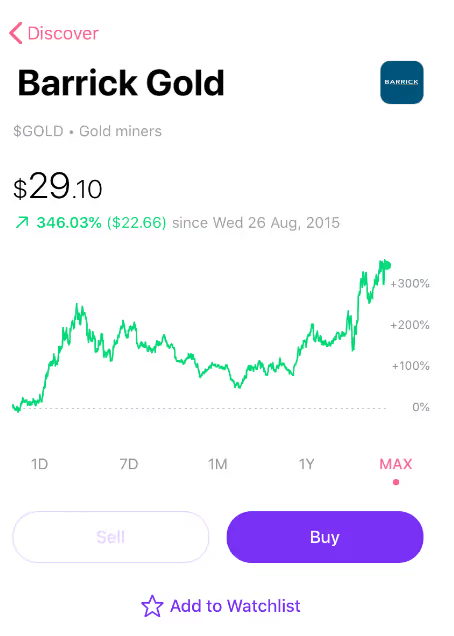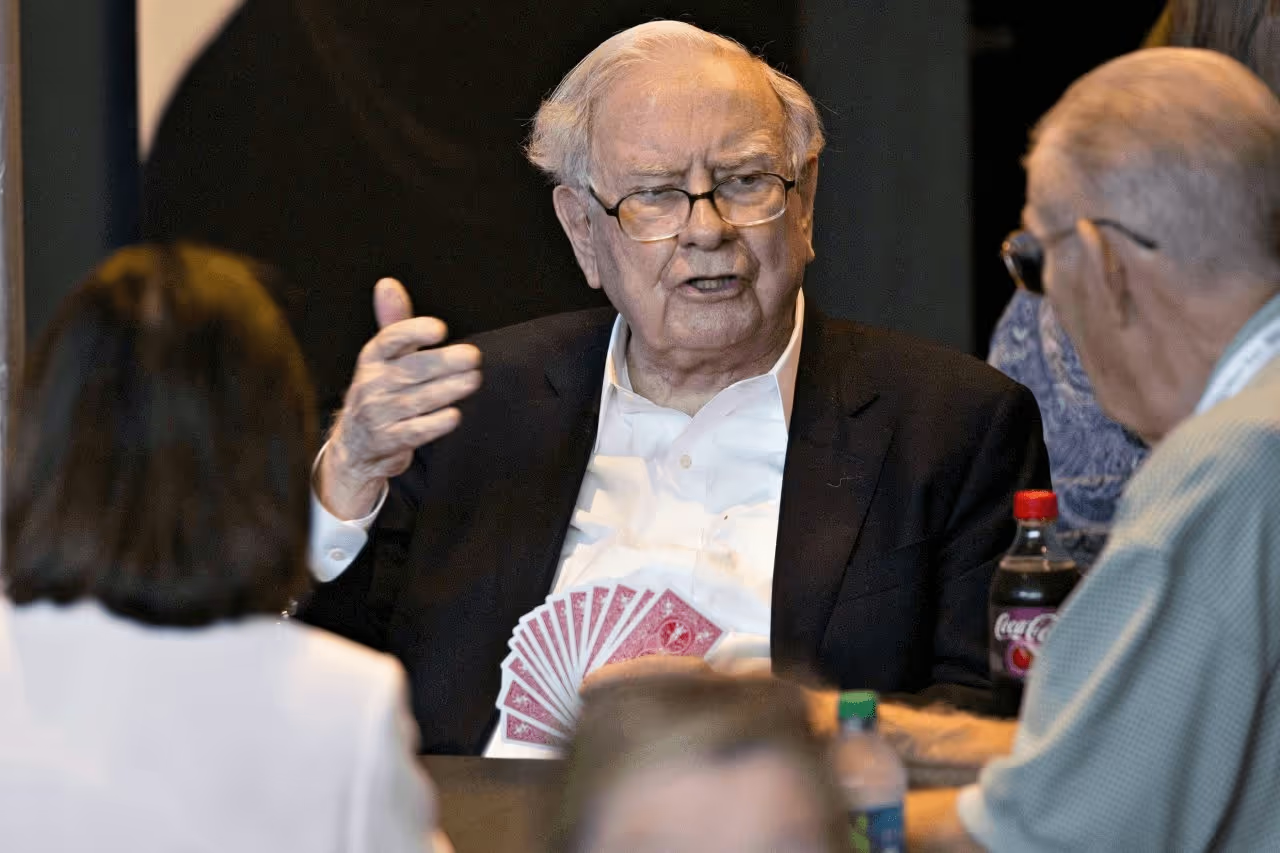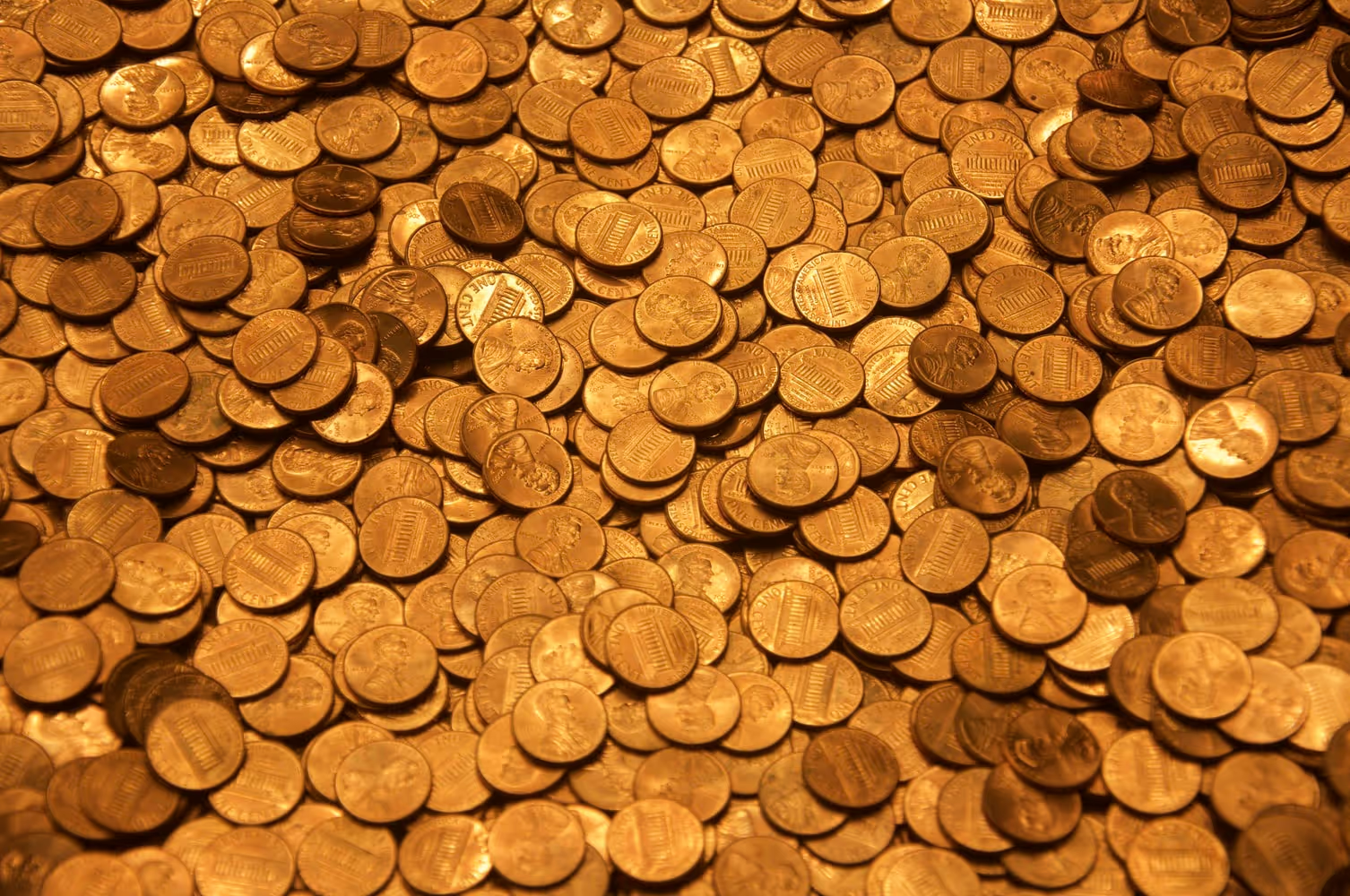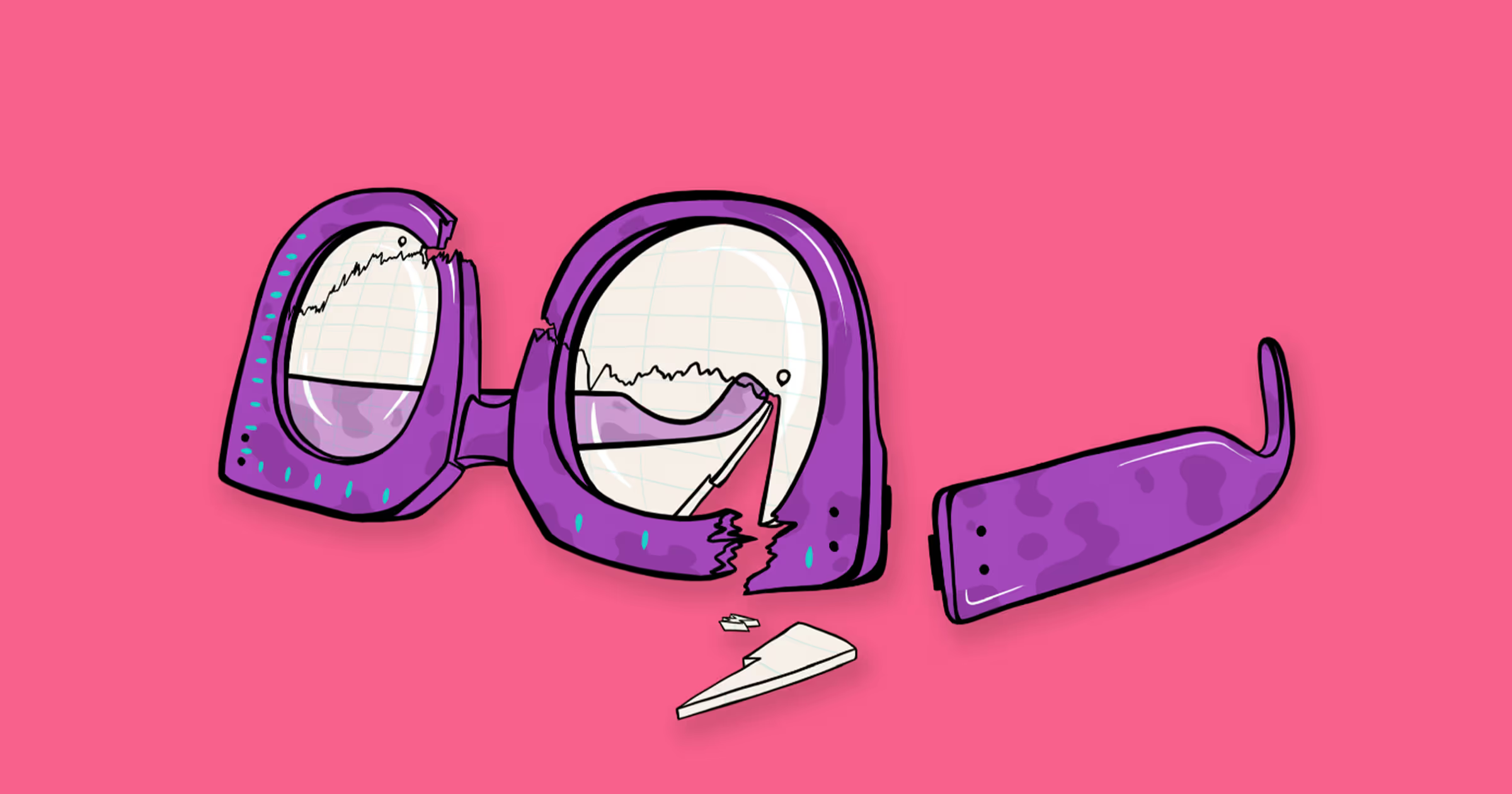Warren Buffet is to the investing world what Messi is to football.
Finance geeks fawn over him and any trade he makes will spawn headlines in business sections across the globe.
We caught a glimpse of this last week when Buffet’s conglomerate, Berkshire Hathaway, released its Form 13F for last quarter.
Form 13F is a document that certain US investment companies must release on a quarterly basis. Significantly, these forms detail what assets a company holds at the end of each quarter.
As such, any Form 13F that Berkshire Hathaway releases is quickly dissected by other investors.
In fact, stocks the firm has invested in will often see a bump in their price after Buffet’s firm releases the regulatory filing, as other investors attempt to copy the company’s strategy.
What happened this time?
Berkshire Hathaway’s most recent filing caught the attention of investors because they revealed a $565 million investment in Barrick Gold, a mining company.
Ordinarily this might not be such a big deal. But Buffet has historically been a fierce critic of gold.

“It gets dug out of the ground in Africa, or someplace,” he said in a speech to Harvard students in 1998. “Then we melt it down, dig another hole, bury it again and pay people to stand around guarding it. It has no utility. Anyone watching from Mars would be scratching their head.”
Buffet doesn’t seem to have changed his mind about the precious metal in the two decades since he made this speech either.
He attacked the returns gold investing provides in a 2018 letter to shareholders, noting that the S&P 500 has been a much better investment in the post-WWII era.
Why Barrick Gold?
You may think that attacking gold repeatedly and then investing in a gold mining company smacks of hypocrisy. This isn’t necessarily the case.
True, a gold mining business will stand to benefit from higher gold prices.
But investing in gold mining companies and buying physical gold are two separate things.
Imagine if a company had one gold mine in a region that was hit by massive flooding. It wouldn’t matter how high the gold price went if that firm wasn’t able to actually operate its mine.
Similarly, a gold mine with low costs and strong infrastructure to transport anything it produces will be better able to take advantage of higher gold prices than one that did not have those capabilities.

This brings us to Barrick Gold.
The mining company is arguably a strong investment as a business, not just because it digs up shiny metal.
The firm has managed to reduce its debt from close to $12 billion to $1.5 billion over the past eight years. With gold prices currently so high, it wouldn’t be surprising if the company manages to shrink this further in the months ahead.
If it does, this could free up cash and lead to higher dividends for investors. Barrick Gold’s dividend in the first quarter of 2019 was $0.04 per share. That rose to $0.08 in the second quarter of this year.
Buffet may not like gold but he does like investing in companies that provide stable, solid returns. There's a good argument to be made that Barrick Gold fits this criteria — even if he doesn’t like the metal it digs up.
Offloading the investment banks
Whether Buffet has suddenly become a gold-standard advocating libertarian or just thought Barrick Gold was a good company to buy into, it’s worth putting things into perspective.
Berkshire Hathaway has $788 billion in assets under management. Its investment in Barrick Gold is worth less than 0.1 per cent of that amount.
Of more concern for many investors may be the huge amount of banking shares that the asset manager dumped from March through to the end of June.
Berkshire Hathaway sold its remaining $300 million stake in Goldman Sachs and also offloaded shares in JP Morgan and Wells Fargo worth more than $3 billion each.
At the same time, however, the investment firm piled over $2.1 billion into Bank of America shares. Buffet’s company already had sizeable holdings in the bank prior to this and now owns 11.8 per cent of the business.

Unfortunately, we can’t break into the Berkshire Hathaway headquarters to understand why this offloading of shares took place or why the firm decided to up its stake in Bank of America.
One theory is that the investment banks Berkshire Hathaway had holdings in are heavily exposed to energy industry debt. With oil prices collapsing this year, many businesses may be unable to pay back their debts — leaving the investment banks to pick up the pieces.
We’ve also seen a number of the biggest investment banks earmark large chunks of capital to make provisions for unpaid debts.
As for Bank of America, it may be the case that Berkshire sees long-term value in the business. Shares in the firm have still not recovered from their pre-COVID highs, meaning that they could be trading at a discount.
Buffet has some history here too. Back in 2008, he famously bought up Goldman Sachs shares, even as other investors sought to sell their stake in the investment bank following the financial crisis.
As we enter a different type of economic crisis, perhaps Buffet felt it was time to exit some of these positions and reduce his exposure to financial services.
Cash piles
The most striking feature of Berkshire Hathaway’s portfolio is the volume of cash it contains.
The firm is now sitting on cash and cash equivalents worth approximately $142 billion, close to the total GDP of Ukraine for 2019.
There is a valuable lesson here — sometimes it’s best to do nothing for a while and keep some of your money in cash.
Just as Messi will wait to make a killer run before scoring a goal, so too is it worth waiting for the right opportunity to invest.
You just have to make sure you don’t miss.
We believe investing should be accessible to everyone. Whether you are a complete beginner or an experienced investor, there’s something for you at every step of your journey. We’ve covered choosing the right investment app, what are dividends and how to invest in ETFs. You’ll also find step by step guides on buying and selling stocks, as well as an ISA explainer and a ‘SIPP vs ISA’ guide to help you decide which account is best for you.
This should not be read as personal investment advice and individual investors should make their own decisions or seek independent advice. This article has not been prepared in accordance with legal requirements designed to promote the independence of investment research and is considered a marketing communication.When you invest, your capital is at risk. The value of your portfolio can go down as well as up and you may get back less than you invest. Past performance is not a reliable indicator of future results.Freetrade is a trading name of Freetrade Limited, which is a member firm of the London Stock Exchange and is authorised and regulated by the Financial Conduct Authority. Registered in England and Wales (no. 09797821).


.avif)



.avif)






